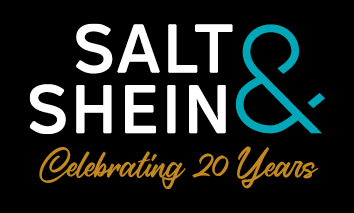Economic Challenges Threaten to Cloud the Focus on ESG
ESG is just one challenge on Government’s long list The government’s election promises around environmental, social and governance (ESG) issues were instrumental in its victory a few weeks ago, reflecting a mandate to treat climate change, gender equity and other ESG matters as essential. “Australian businesses know that action on climate change is good for…
ESG is just one challenge on Government’s long list
The government’s election promises around environmental, social and governance (ESG) issues were instrumental in its victory a few weeks ago, reflecting a mandate to treat climate change, gender equity and other ESG matters as essential.
“Australian businesses know that action on climate change is good for jobs and good for our economy, and I want to join the global effort,” Prime Minister Albanese told the BBC just after his election win.
During a joint press conference with NZ Prime Minister Ardern, Prime Minister Albanese reiterated the new government’s commitment to a 43% reduction in carbon emissions by 2030.
“It’s like Australia has come out of the naughty corner,” he said of the target.
It looked as though ESG would finally have its day in the sun, with the government embracing what corporate Australia already knows – ESG is good for productivity, profit, the economy and the country.
Storm clouds
However, mounting economic challenges threaten to cloud the focus on ESG. The RBA has increased the cash rate twice in two months – with further rate rises needed to rein in inflation.
The World Bank and the OECD have cut their global economic-growth outlooks. The World Bank warned of rising prices and a stagnant economy – stagflation — last seen in the 1970s; the OECD warned of a cost-of-living crisis and other global fallout from Russia’s war on Ukraine.
With the emergence of poor economic news, we can’t help but wonder whether the immediacy of cost-of-living issues will force Prime Minister Albanese and his government to shift priorities.
Investor relations specialist and economist Howard Marks notes the new government has a raft of issues to juggle — massive COVID-related debt and geopolitical concerns, as well as rising rates and inflation.
“Cost-of-living pressures would probably be front and centre in their mind. When you see vegetable prices going up 7 per cent in the first three months of the year and energy prices going up by more than that, it creates an atmosphere amongst the population that Government would want to nip in the bud very quickly,” Howard says.
Not all gloom
What does this mean for companies, their people and the national skills shortage?
Fortunately, corporate Australia has been running ahead of government when it comes to ESG. The way we see it, companies view ESG as part of a suite of actions that help retain valued employees.
Here are a few examples:
- Environmental: Many graduates and early to mid-career candidates will only work for companies with sound environmental track records, including robust carbon-emissions targets.
- Social: Australia’s ongoing skills shortage has led companies to go beyond requisite health and safety measures to take action on flexible working and inclusion to become employers of choice and retain employees.
- Governance: Board accountability may build investor confidence but so does board diversity, proven to add value by expanding viewpoints conveyed around the boardroom table.
Kylie Ramsden, Partner, Investor Relations, at public affairs firm GRACosway, says the risk-management aspect of ESG is even more important in an uncertain economy.
“Whilst there is an uncertain economic environment, investors certainly do focus on the bottom line and the risks associated with financials, but with the growing prominence of ESG, I don’t think it’s going to get any less attention,” Kylie says.
She adds that many corporates need to meet ESG requirements as part of their commitments to shareholders and other stakeholders.
“Yes, there is more tension on the bottom line in an uncertain environment with rising interest rates, etcetera, but ESG is such a big element now, it’s integrated into the investment process for super funds.”
When it comes to ESG, investors want more
Steve Ashe is General Manager Corporate Affairs and Investor Relations at ASX-listed food, liquor and hardware wholesaler Metcash.
Steve says Metcash has aggressive carbon-emissions targets and is working hard to ramp them up.
“We want to be more aggressive than what’s already in the marketplace,” he says.
Metcash is working to align with the Global Reporting Initiative and its exhaustive list of ESG requirements, including an independent audit, as well as the Task Force on Climate-Related Financial Disclosures, which assesses an organisation’s climate-related financial risk.
Why? Because a growing number of stakeholders take ESG very seriously.
“It’s not only government and communities. It’s also our retailers, who are our customers; shoppers, who are our retailers’ customers; and investors. It’s certainly accelerated in prominence,” he adds.
How does Metcash balance relatively short-term performance requirements with ESG metrics, which often take longer to bear fruit?
ESG is built into the Metcash strategy, Steve says.
“For example, when you’re looking at remuneration for executives, we’ve expanded their scorecard which is how they’re remunerated. There’s financial and non-financial,” he adds.
Historically, Metcash’s ESG components were mainly around safety and organisational culture, but emissions reduction, waste to landfill, modern slavery and other areas have expanded the range of measures that make up senior leaders’ remuneration scorecards.
“It’s built into the overall package, so performance is not just financial; it’s non-financial as well. They’re equally important,” Steve adds.
Government scorecard
Time in office may be the new government’s equivalent to the executive scorecard – and Prime Minister Albanese’s scorecard appears be getting longer by the day.
He and his government have committed to carbon-emissions reduction and full economic inclusion for women – but homeowners will want relief from rising mortgages, as well as higher food and energy bills.
“I think the government will not want to lose its momentum on dealing with climate change following their recent election victory,” Howard says.
“However, it does have the immediate challenge of rising food and energy prices as well as general cost-of-living pressures including higher interest rates that may force them to re-prioritise their focus in the near term,” Howard says.
“If they don’t get those policy settings right quickly, people will lose patience and look for who to blame, which will likely fall on the current government,” he says.
“Fair or unfair, that’s what will happen. They’re in a tough spot.”
We see this as a golden opportunity for government to catch up with corporate Australia by extracting the full potential of ESG measures to improve national productivity and benefit the economy.
Discover insights.
Creating messages that cut through social media, news cycles and even the humble inbox has never been easy, but, with more noise across more channels, it’s become more important than ever to create messages that stand out and land with impact. Visual communications tools are gaining traction as a way of shaping messages that hit…
Looking for greater choice in the contract options available to you? Having history and rapport with a specialist recruiter like Fraser Clapcott will open doors to opportunities you may have missed for yourself, that add value for both contractor and employer. In the current climate of uncertainty, a willingness and propensity for flexibility comes with…
If you’ve been ruminating on changing-up your comms career, now may be the ideal time to talk with your trusted recruiter about making a move. Salt & Shein Director, Lucy Newcomb, sees significant scope for motivated communicators to broaden their career horizons, and make the job of their dreams a reality, in 2023. “A rapidly…







